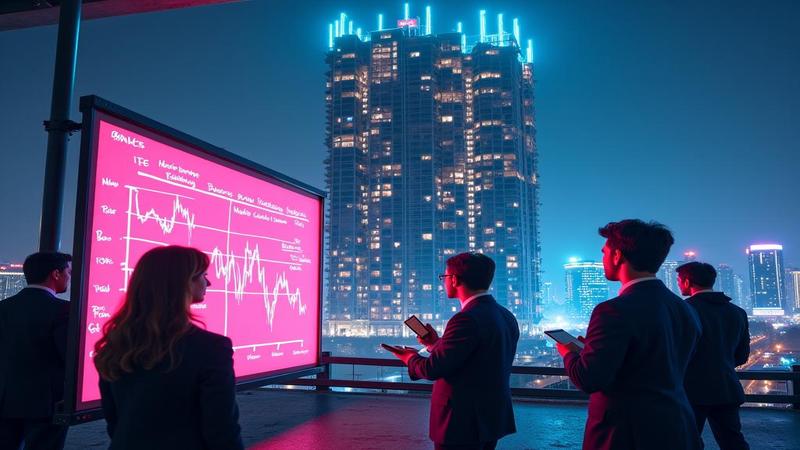Evergrande Crisis: Why Should Anyone Care About a Debt-Soaked Dragon?

Evergrande, that debt-soaked sculpture in the middle of China’s property circus, keeps wobbling and somehow staying upright long enough to be discussed on morning news. Investors wake up to screen savers that claim everything is fine until they realize it’s not. In the grand theater of global finance, a faltering developer is the most reliable plot twist.
The BBC headline asks: why should anyone care about the crisis-hit Chinese property giant? The answer, the newsroom suggests, is that this is a ledger about belief as much as balance sheets, a quarterly report card for the worldwide dream of owning a balcony.
In this era of ‘adjusted’ profits and miracles arriving quarter after quarter, Evergrande’s numbers read like a magician’s tricks—look here at a spike, ignore the liabilities scuttling under the table.
When a property empire collapses, it’s not just a builder’s debt; it’s a social mood swing that makes landlords suddenly remember their children.
Homebuyers in China face empty lots, while global banks practice the ancient art of pretending they weren’t the last to know.
Credit markets respond with the delicacy of a hangover; every downtick feels like a personal insult to your 401(k) and your trench coat.
The real question isn’t whether Evergrande will survive; it’s whether the market will stop treating every crisis as a ‘buy the dip’ therapy session.
Meanwhile, investors’ risk dashboards tremble, their projections swaying like an ‘ergonomic office chair’ in a hurricane, which is to say they remain impossibly comfortable while chaos rattles the legs.
Policy makers juggle stability as a brand, while economists field questions that feel like therapy: is this a liquidity crunch or a confidence problem? Answers arrive with the seriousness of a sitcom.
In corporate press rooms, the vocabulary grows by one buzzword per press release: transformational, restructuring, strategic pause. Journalists doodle graphs that would scare a scarecrow.
Some officials insist this is Beijing-specific doom, others call it a global market correction searching for a soundtrack. In boardrooms between restructurings, the mood simmers and the room smells faintly of coffee and policy memos, like a ‘portable espresso maker’ in a boardroom between restructurings.

The human side includes families waiting for homes that exist only on a blueprint, while bankers practice polite smiles and ledger gymnastics.
International buyers pull back, local auditors balance numbers with red pencils, and every press release is a magic trick performed without a rabbit.
Meanwhile the miracle arrived quarter after quarter, even if the calendar’s pages kept repeating the same debt slogans.
You should care because this is a litmus test for whether markets punish misaligned incentives or simply enjoy a long-running live theater about debt and confidence.
If Evergrande falls, dominoes will tip into steel, shipping, and perhaps your neighbor’s balcony; if it holds, it sets a weird precedent that risk is negotiable.
Either way, the system will be tested, not by a single giant, but by the chorus of investors, creditors, and homebuyers who never learned to pronounce ‘Evergrande’ without a shudder.
We will continue to report at a safe distance, sprinkling sarcasm like confetti, because solemnly weeping over rate cuts solves nothing.
For now, the moral is simple: no one pays attention until someone yells ‘default’ loudly enough to wake the 3 a.m. portfolio notifications.
So yes, you should care, because this is the global mood ring turning from hopeful green to uneasy teal.
And if you still don’t care, remember: you may own nothing today, but your central bank will own the narrative.
Our newsroom remains vigilant, eyes raised, eyebrows arched, as the Great Wall of paperwork leans like a bored investor in need of a vacation.
